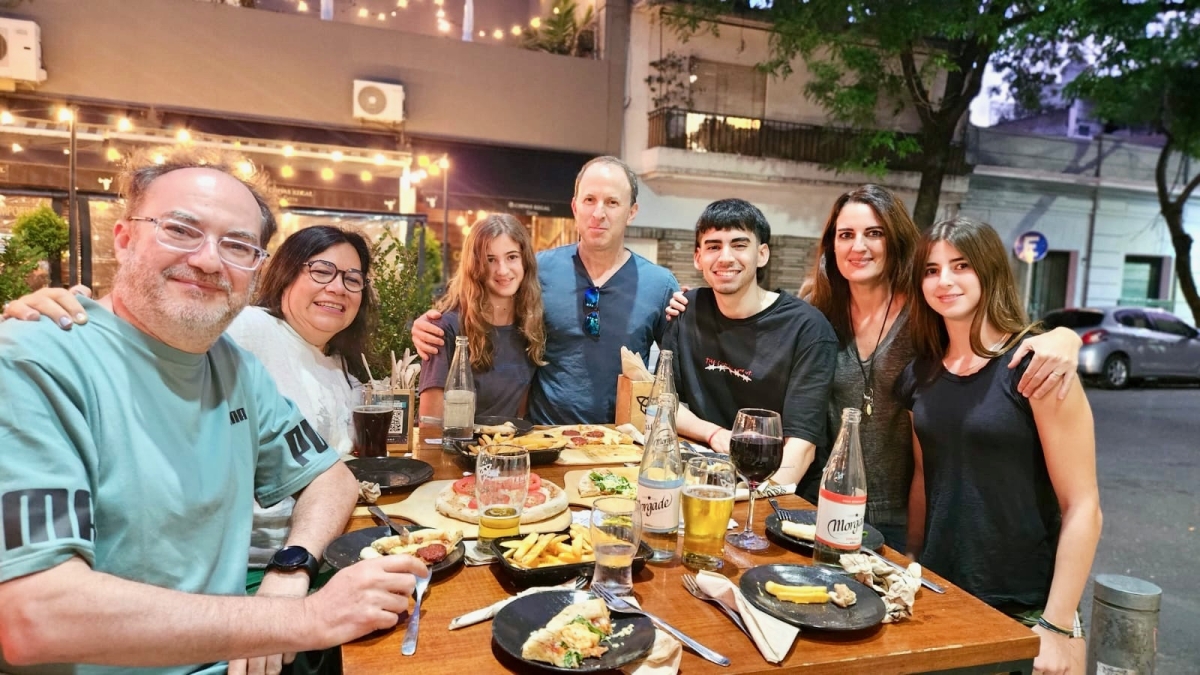I have always been fascinated with Argentina and the thought of being half Argentine due to my mother’s nationality. As I was growing up, my family would make empanadas, eat alfajores and watch Messi playing soccer on TV. I spoke Spanish before I could speak English, but beyond the stereotypical aspects of Argentine life, I was dying to know what authentic Argentine culture was like.
I finally got the chance to visit Argentina during winter break of my sophomore year. My family and I stayed in a small apartment in the capital, Buenos Aires, about 20 minutes from Villa del Parque, the neighborhood that my uncle, aunt and cousin lived in and where my mother and my uncle were raised.
I saw how my family in Argentina lived. Despite being well-educated and employed, they struggle with everyday expenses, much like most of the country’s dwindling middle class. During my visit, there was one topic brought up again and again: the economy.
We had arrived just when Javier Milei had become the president. My family was devastated, believing his “Trump-like” character would be the last straw of an already struggling country. Although Argentina’s inflation rate has been fluctuating, it hit a recent high of 289.4% in April, according to the BBC. Since Milei was inaugurated in December 2023, he has made drastic changes to the economy, devaluing the Argentine peso by 50% and rapidly cutting down on public spending.
“The rates for essential services [electricity, water, gas, etc.] and public transportation have gone up a lot, at a higher percentage than our salaries,” said Adriana Juarez, my aunt, who lives in Buenos Aires.
Argentina was one of the world’s wealthiest countries in the early 1900s, according to an article on SpringerOpen, but a series of corrupt governments threw it all away.
While visiting, I saw a split between people on this topic. Taxi drivers and vendors raved about the president, believing he was the solution to the country’s economic issues as he prioritizes stabilizing the economy at all costs. At the same time, my family would speak about the problems he had caused, like increased poverty and fewer job opportunities.
“It is true that our economy was not doing well,” my uncle, Martin Sozzi, said. “Especially in the final part of the government of Alberto Fernandez, the previous president, inflation was very high and now Milei is trying to lower it and put the public accounts in order. But in this search for balance he is leaving many people out of the system. It is a brutal economic adjustment, which is carried out regardless of the social consequences it generates.”
After visiting, I really felt connected to the people. It hurt even more to see my family’s struggle and the headlines about the economy. I feel Argentine, but I don’t have to go through what my family does. I love the people, but I don’t live with them.
My experiences and interactions with the country have made me no less proud to be Argentine. They have inspired me to do all I can to better the country and preserve its beauty. I’ve wondered before if my family in Argentina wishes that they lived a life like mine, with more privileges and opportunities. I once asked my mom, “can’t we help them get the money to leave the country?” She scoffed. This wasn’t the issue, she said. They love the country, they just want it to work. It’s their country, their soccer, their tango, their “mate” tea. It’s not about giving up on the country — it’s about saving it.






